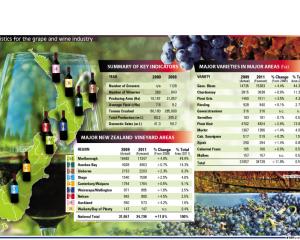New Zealand's agriculture industry could be left behind if the country is not open to discussing the issue of genetically modified technology, industry leaders believe.
Discussion was needed about the adoption of genetic technologies, along with the intensification of agriculture, the role of foreign capital in the development of New Zealand agriculture, and global sourcing of product, the latest KPMG Agribusiness Agenda has found.
The report, which followed interviews with more than 80 agribusiness industry leaders, provided a detailed analysis of the sector, focusing on ideas to enable the industry to capture the potential that existed in global markets.
Many industry leaders stated there was a need to have a "comprehensive conversation" on the adoption of genetic modification technology.
While it remained an emotive issue in New Zealand, the use of those technologies internationally was moving into the mainstream, KPMG head of agribusiness Ian Proudfoot said.
"Thus, there is a concern that if we are not open to discussing the issue, the industry could be left behind. No-one views this as an area New Zealand should lead in, but it is a technology we cannot afford to ignore."
Attitudes around the world appeared to be softening. Many scientists and researchers were mounting credible arguments that it would become more difficult to satisfy the growing global demand for protein without the use of modified plants that resisted disease and drought and were able to be grown in marginal soils, the report said.
The use of GM crops was expected to reduce degradation of land and water because of fewer requirements for agrichemicals and fertilisers.
It was critical the debate - one of the most important facing New Zealand - was based on scientific fact and balanced market research, rather than "emotion and hearsay", the report said.
Another idea raised was to restructure the student loan scheme so only students entering programmes that directly benefited the economy received the full advantages associated with interest-free loans.
It was worrying student numbers entering programmes that directly benefited the agricultural sector had been in long-term decline.
Many industry leaders were concerned about processing assets falling into foreign ownership, but considered co-investment with foreign investors had the potential to create significant value for New Zealand through access to capital for investment, markets, innovation and management expertise.
Targeted government support was also vital for the industry to succeed and the Government's seed funding for irrigation was welcomed.
Some of the main issues facing New Zealand agribusiness included biosecurity, customer integration, defining the "clean, green" brand, on-farm investment in productivity improvement, governance and market access.
Biosecurity was the highest rated issue in the survey, reflecting the potentially catastrophic effect a severe biosecurity incursion could have on the industry.
Agribusiness Agenda
It's about time ...
• For commercial collaborations and market integration with customers to create transformational innovation.
• To recognise that strategic foreign co-investment in our agricultural sector has the potential to unlock significant economic value for New Zealand.
• For the Government to consider preferential funding mechanisms for students wanting to pursue subjects critical to the economy, like agricultural studies.
• For reasoned and informed debate on issues that will define the future of New Zealand agriculture, such as genetic technologies and farm intensification.
• For funding proactive research into biosecurity threats to maintain our predominantly disease-free status.
• To invest in technology to maximise productivity and value realised behind the farm gate.





